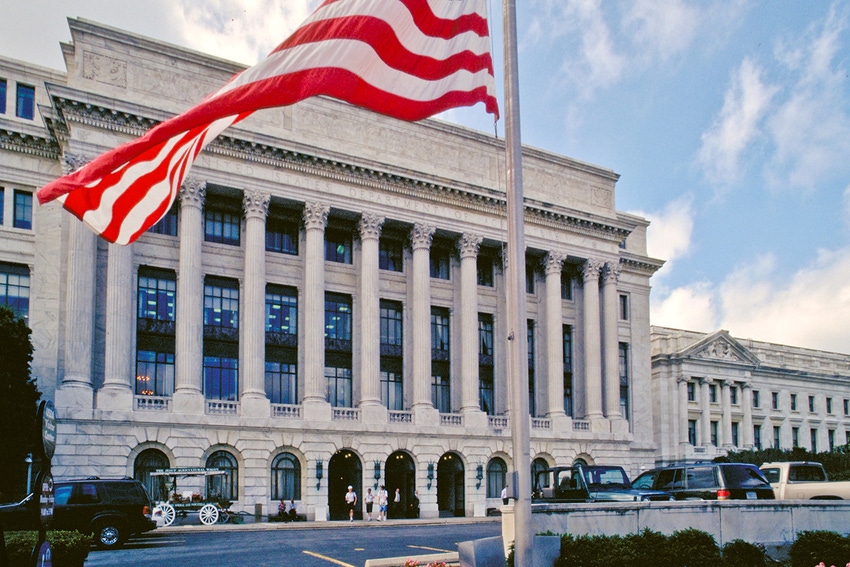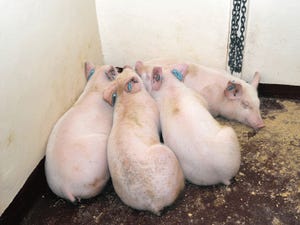World distracted by Trump, USDA takes final action
The USDA wrapped up the final items of business while the agriculture community was distracted with Trump's cabinet picks.
January 11, 2017

All eyes this week have been on President-elect Donald Trump, waiting for him to name drop his pick for U.S. Secretary of Agriculture. Since the election results have been announced, the agriculture community has been trying to predict Trump’s pick as they watch, wonder and even report the agriculture leaders coming in and out of Trump Towers. Numerous individuals’ names have appeared in ag media reports and Hill-watching sources. Yet, today we are no closer to knowing Trump’s selection. So, as former agriculture secretary under Ronald Reagan and Trump’s agricultural advisory committee member John Block wisely says “It’s very risky to think you know anything, because you don’t.”
As we conquer the January days one by one, it is definitely easy to just waste time watching, waiting and wondering. In the last few weeks of office, Secretary Tom Vilsack and his team took action. The USDA wrapped up the final items of business while the agriculture community was distracted.
Did you keep track? Here are three important action items worth noting:
1. USDA issues GIPSA rules
USDA’s Grain Inspection, Packers and Stockyards Administration released its “Farmer Fair Practices Rules” that according to USDA are to “target the most harmful practices hurting farmers” and “provide protection” to farmers under the Packers and Stockyards Act, reports government consultant Scott Shearer. It includes two proposed rules and an interim final rule. The first proposed rule would 1) identify certain activities that are “unfair, unjustly discriminatory or deceptive practices or devices” by packers, swine contractors or live poultry dealers and 2) provide criteria when determining whether a packer, swine contractor or live poultry dealer engaged in conduct that provided undue or unreasonable preferences or advantages. The second proposed rule would establish criteria affecting how a live poultry dealer uses poultry growing systems.
Producer groups and meat industry organizations widely oppose the rules. The rule will go into effect after a 60-day comment period which ends under the Trump administration.
2. USDA filed motion to dismiss the HSUS lawsuit
Last week, USDA finally filed a motion to dismiss a lawsuit brought by the Humane Society of the U.S. against the agency over the sale by the NPPC to the National Pork Board of the Pork. The Other White Meat trademarks. In its motion for summary judgment filed with U.S. District Court for the District of Columbia Circuit, the USDA argues that the HSUS lawsuit lacks merit, is barred by the six-year statute of limitations, that the plaintiffs failed to establish standing to file the lawsuit or show that they were harmed by the sale of Pork. The Other White Meat.
In 2012, the HSUS, an Iowa farmer and the Iowa Citizens for Community Improvement filed suit against the USDA, claiming the trademarks were overvalued and seeking to have the sale rescinded. The U.S. District Court for the District of Columbia Circuit dismissed the suit for lack of standing, but a federal appeals court in August 2015 reinstated it, sending the case back to the District Court. Before any proceedings on the merits of the lawsuit, the USDA inexplicably entered into settlement talks with the HSUS. Upon learning that the USDA planned to settle in late-2015, pork leaders loudly called on the USDA to fight.
3. USDA develops animal welfare assessment standards and programs
To assist industry with verifying animal welfare standards, the USDA Agricultural Marketing Service developed a program that will offer assessments of independent animal welfare standards and programs to determine if they conform to the International Organization for Standardization Technical Specification 34700 – Animal Welfare Management/General Requirements and Guidance for Organizations in the Food Supply Chain. The voluntary AMS program is a critical marketing tool for livestock producers in marketing food animals.
You May Also Like



